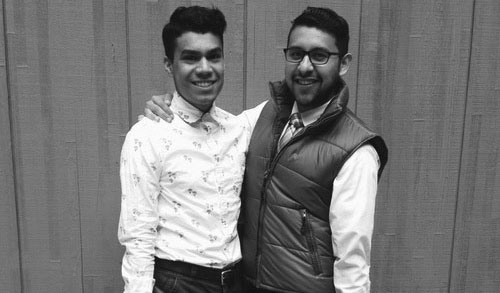By Angie Tinker, Co-Editor of The Matrix
What do the Diversity Center, the Women’s Center and your favorite school clubs have in common? They can all be safe spaces.
Places like the Diversity Center and the Women’s Center were created to give people a place to go to speak without fear. Dan Stell, a senior and Associated Students of Pacific Lutheran University vice president, noted they are valuable as safe spaces.
“[A safe space is an] environment where your identities will not be challenged or criticized,” Stell said. “[It’s a place] where you are comfortable, truly embracing all the facets of your personality and sharing them with others.”
These places depend on the individual. Many find solace in the Diversity Center, but some get that comfort relaxing in a dorm room with friends. Places from the practice rooms in Mary Baker Russell Music Center to the track field or the Counseling Center can all be safe spaces.
Safe spaces don’t need to be physical locations, though. They can also be digital. When I was a teenager, this took the form of texting. My parents couldn’t see or overhear my thoughts in texts, so it was just me and the friends I trusted to share secrets with. Technology has expanded the range of options we have for the safe release of thoughts.
Senior David Leon is a bit of a controversial figure on campus due to his role in hosting the anonymous confessions pages, such as “PLU Confess & Misc.” Leon believes he is helping the PLU community.
“The confessions page allows for an exchange and dialogue to take place amongst everyone affiliated with PLU and to really engage and facilitate widespread community support,” Leon said.
Stell disagreed, saying confessions pages can lead to bullying without repercussions.
“There is no active dialogue when the posts there are anonymous,” Stell said. “I would say that in order to have a safe space one must be open to the vulnerability of people knowing your thoughts and ideas.”
“I think that anonymity can be vitally important in keeping a safe space safe, but I would say it’s anonymity towards those that are not a part of it,” Stell said.
Leon agreed that anonymity is important.
“It gives [people who post confessions] a sense of control over their personal safety but also how the world views their own individual lives,”
Leon said. “The fact that we have the ability to cloak ourselves but be able to share out struggles and have others relate is a powerful thing.”
Leon thinks anonymity builds empathy. People can be nasty, but there is evidence of empathy. Some have confessed about mental health issues and were referred to professional help.
“[These spaces] are environments where you begin to critically analyze the different identities that you have and question the privileges that go along with them,” Stell said.
With this opportunity, a safe space can be the place for important conversations to start.


















